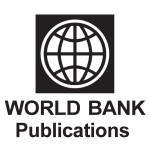The World Bank starts its own Open Access repository
Posted: April 16th, 2012 | Author: Olaf Siegert | Filed under: Newspost | Tags: Economics, Economists Online, Open Access, RePEc, Repository, SSRN | Comments Off on The World Bank starts its own Open Access repositoryMore than 2,000 books, articles, reports and research papers available
 The World Bank last week launched its Open Knowledge Repository, which is a one-stop-shop for most of the Bank’s research outputs and knowledge products, providing free and unrestricted access. Additional material, including foreign language editions and links to datasets, will be added in the coming year.
The World Bank last week launched its Open Knowledge Repository, which is a one-stop-shop for most of the Bank’s research outputs and knowledge products, providing free and unrestricted access. Additional material, including foreign language editions and links to datasets, will be added in the coming year.
The repository uses a dissemation strategy similar to Econstor, which means that their publications are also visible in
“major international repositories (and databases) such as RePEc (Research Papers in Economics), SSRN and Economists Online. This means that the World Bank publishes just once in its own Open Knowledge Repository while its research is also “harvested” and made openly available through many other searchable online repositories, increasing the number of people able to find World Bank content.”
On top of that, the World Bank also tries to negotiate an Open Access friendly environment for future publications of their researchers:
“The Bank is working with journal publishers to determine fair embargo periods after which peer-reviewed journal articles, as accepted for publication, will be added to the repository. The working paper versions of journal articles are available in the Open Knowledge Repository under a Creative Commons attribution-only (CC BY) license without any embargo period.
World Bank Publisher Carlos Rossel expects embargo periods on journal articles to shorten as more organizations opt for open access and the academic publishing industry adapts to the Internet age. “The changes have been tremendous already, but I think there is a groundswell that is saying that frankly part of the value added by journal publishers can be accomplished through other means, and really what’s most important is for our knowledge to be readily accessible,” he said.”
Read the full press release here
 Subscribe to RSS
Subscribe to RSS


